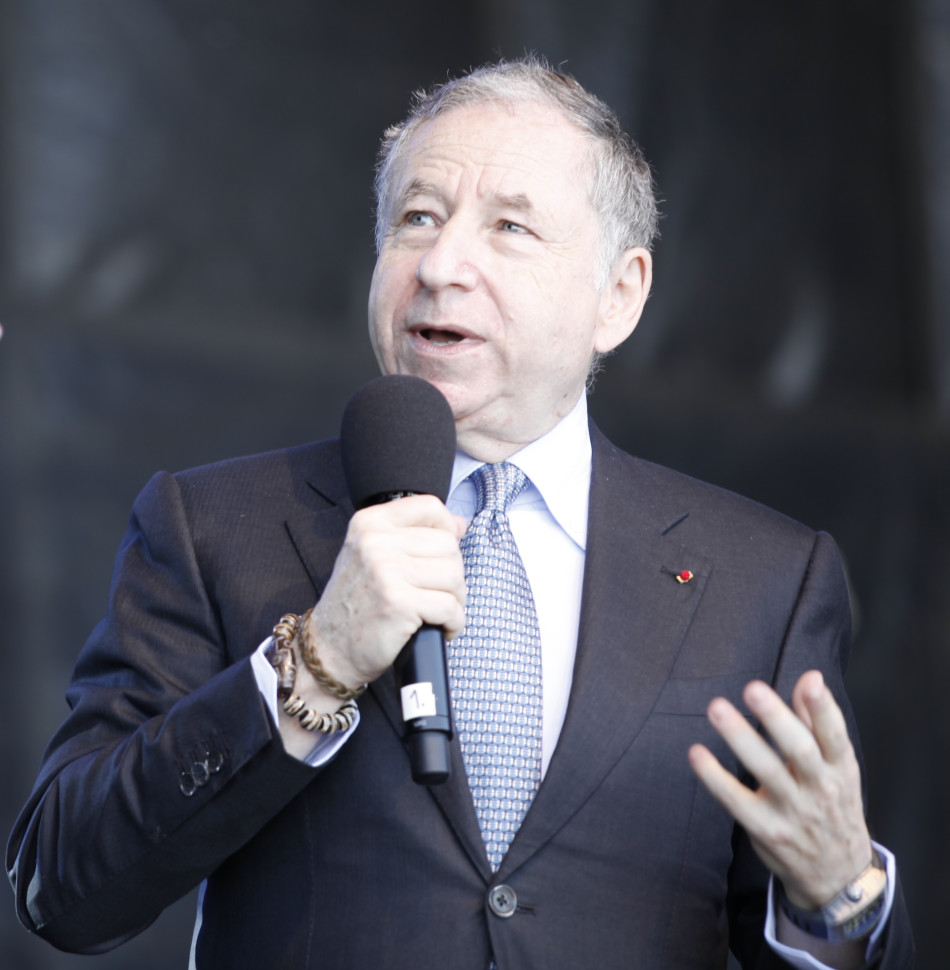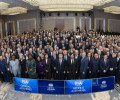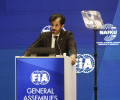Todt’s Kazakhstan visit draws to a close
Jean Todt’s visit to Kazakhstan in his roles as FIA President and the UN Secretary General’s Special Envoy for Road Safety, came to an end in the country’s capital, Astana, this afternoon.

There were two important appointments on his agenda; taking part in the fourth edition of the Forum for Kazakhstan Mechanical Engineers and a meeting with the Minister of Culture and Sport of the Republic of Kazakhstan, Muhamediuly Arystanbek.
Todt addressed the forum on the topic of new automobile industry products aimed at improving road safety: “From the basic seat belts, through to more advanced innovations such as the airbag, anti-lock brakes, and electronic stability control, new cars are increasingly able to prevent crashes and protect occupants from the terrible effects of a collision. We have a tremendous opportunity ahead: modern cars can be used as an effective enabler of sustainable mobility, improving safety, mitigating congestion and ensuring a better environmental performance of vehicles on the road. According to the International Energy Agency, by 2050 the number of cars worldwide is expected to increase to more than 2.2 billion: this will impose additional pressure on existing transport infrastructure in developed but especially developing countries. If our vehicles have access to real traffic information, communicating with road signs, traffic lights, other cars and traffic management centres, they will automatically select the shortest and safest route and gain a fair portion of time for a driver.”
All this progress means that road safety is even more in the public eye than before. As soon as possible, solutions that ensure not only that cars are safer, but also increase safety for other road users, should be brought into mass production. This should happen not only in the most developed countries, where this process has been underway for some time now, but also in those places where the economy is not so buoyant. “It is essential that basic safety applications reach emerging markets, where the combination of more relaxed regulations and industry practices looking to save on production costs result in the evidence that new cars sold lack even basic safety features” – said Todt – “The WHO global report tells us that road users around the world are unequally protected: the risk of dying in a road traffic crash still depends, in great part, on where people live and how they move around. A big gap still separates high-income countries from low- and middle- income ones where 90% of road traffic deaths occur in spite of having just 54% of the world’s vehicles.”
One of the examples given by Todt related to the use of an automatic emergency braking system. “It is probably a mature technology, reliable and ready for large deployment. Rear-end collisions are among the worst, especially if pedestrians or cyclists are involved. Automatic emergency braking systems (AEB) can prevent such collisions entirely – or, at the very least, considerably mitigate their impact. If a radar or video sensor detects a potential obstacle ahead of the car, the braking system is first prepared for a full emergency braking manoeuvre, and the driver is warned. If the driver fails to respond, the system performs a partial braking manoeuvre. These systems exist and are regulated for trucks and buses. Passenger car manufacturers didn't wait for a regulation to equip some of their vehicles with this feature. But, maybe, regulating AEB for passenger cars could increase the diffusion of the technology. I am truly convinced that the new technology in cars represents a unique opportunity to improve road safety, if the deployment strategy is designed in a proper way.”
The day ended with a meeting with Muhamediuly Arystanbek Kazakhstan’s Minister of Culture and Sport, where among the topics discussed was the development of grassroots motor sport in the Central Asian country.

 Facebook
Facebook Twitter
Twitter






